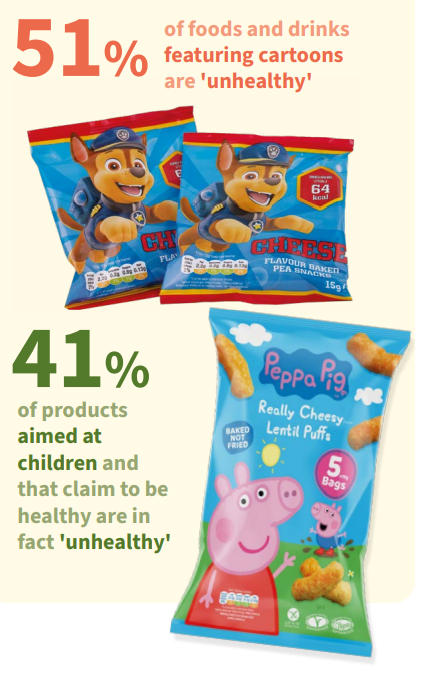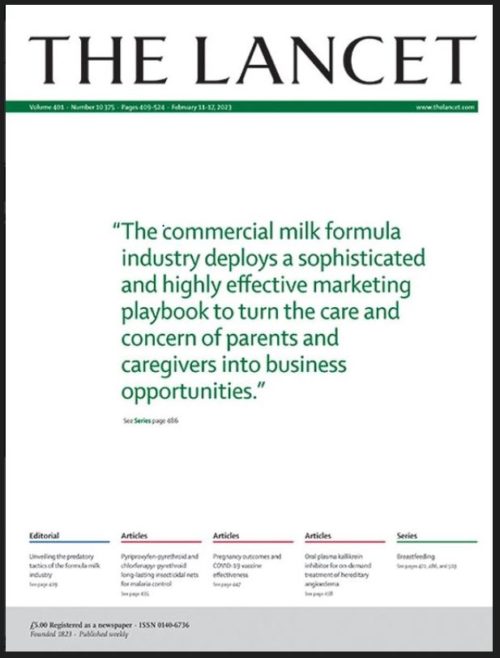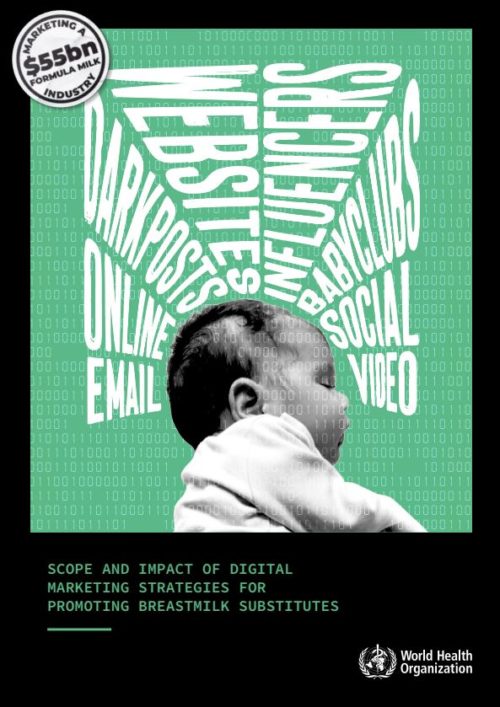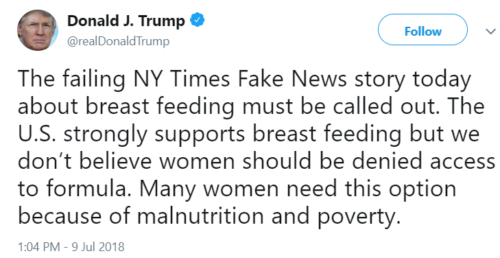How the food industry exerts influence V: Professional journals (Infant formula companies)
Dr Katie Pereira-Kotze, a part time Senior Nutritionist at First Steps Nutrition Trust wrote me to ask if I might comment on the conflicts of interest displayed at a conference sponsored by the British Journal of Midwifery (BJM). This journal accepts sponsorship for its annual conference from breastmilk substitute companies (Nutricia, Kendamil, Nestle).
Groups concerned about the historic role of infant formula compnanies in discouraging breastfeeding in new mothers, have asked the BJM not to permit this funding.
For example, the Baby Feeding Law Group UK wrote a letter to the conference organisers in 2022.
We would also like to share with you our perceptions of the motivations of companies such as Kendamil and Nutricia for sponsoring events such as your conference. It is against the law in many countries including the UK for companies to promote infant formula. By partnering with organisations or sponsoring events, these companies avoid workplace controls on advertising and gain direct access to health care workers, including in the case of the BJM conference, midwives, and in doing so create a valuable link to pregnant and post-partum women.
The British Medical Journal (BMJ) also commented on these conflicted interests: Midwifery conference is criticised over formula milk sponsors.
Three companies that market formula milk (Aptamil, Kendamil, and Nestlé) are sponsoring the conference and have each been given a 40 minute slot during the one day conference programme.
This journal contrasted its own position on infant formula complany sponsorship with that of the midwifery jounral:
In 2019 The BMJ announced that it would no longer carry advertisements for breastmilk substitutes,4 and after pressure from clinicians and campaigners the Royal College of Paediatrics and Child Health also said that it would stop accepting funding from formula milk companies. Robert Boyle, a clinical reader in paediatric allergy at Imperial College London, told The BMJ, “Formula company marketing aims to disrupt breastfeeding, their main competitor, so that the companies can sell more formula.
Comment: The role of the commercial infant formula industry in pushing its products and discouraging breastfeeding has been well documented for decades, most recently in a series of Lancet Commission reports. Conferences are expensive to run and the British Journal of Midwifery undoubtedly can use the infant formula company money—but at some cost to its reputation. The optics do not look good. Sometimes, the money isn’t worth it. Infant formula companies have joined cigarette and opioid companies in being viewed as producing products with great capability of doing more harm than good. The sooner the BJM stops taking their funding, the better.










